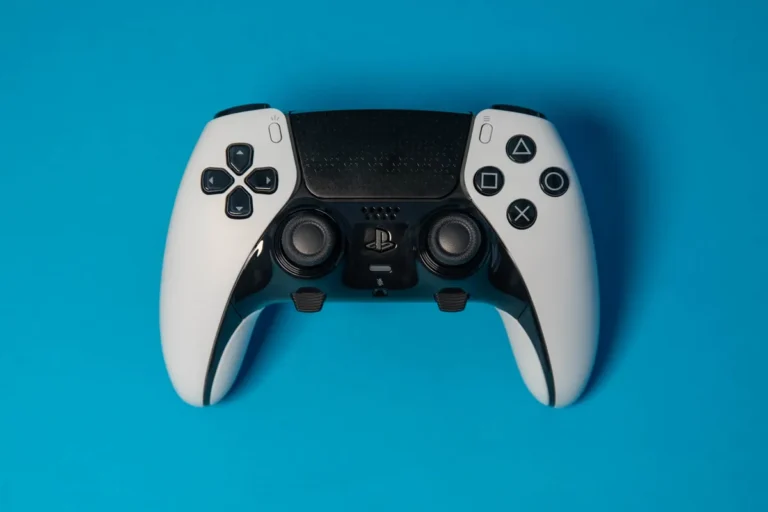Cleaners for Aluminum is a versatile and widely used metal, found in everything from cookware to car parts, window frames, and industrial equipment. But aluminum’s tendency to oxidize or become stained over time makes proper cleaning essential. Whether you’re maintaining household items or industrial surfaces, choosing the right cleaner can significantly affect performance, longevity, and aesthetics.
In this guide, we explore the best types of aluminum cleaners, how they work, and how to use them safely and effectively.
Understanding Cleaners for Aluminum Needs
Aluminum is a soft, non-magnetic metal that reacts with oxygen to form a thin oxide layer. This layer protects the metal but can become dull or discolored over time.
Common Issues with Aluminum Surfaces
- Oxidation (white chalky appearance)
- Grease and oil buildup
- Water stains or hard water spots
- Corrosion from environmental exposure
- Black streaks from acid rain or pollution
Each problem requires a specific approach. The wrong cleaner can worsen the damage, especially with anodized or painted aluminum.
Types of Cleaners for Aluminum
There are several categories of cleaners designed for aluminum. Your choice should depend on the surface type, degree of staining, and desired finish.
Mild Detergents (For Light Cleaning)
For routine maintenance of aluminum cookware, patio furniture, or light fixtures, mild dish soap and warm water are often sufficient.
Best For:
- Kitchen aluminum items
- Patio furniture
- Decorative elements
How to Use:
- Mix a few drops of dish soap with warm water.
- Use a soft cloth or sponge to clean the surface.
- Rinse thoroughly to prevent residue.
Avoid: Abrasive pads or steel wool, which can scratch aluminum.
Acid-Based Cleaners (For Heavy Oxidation)
Aluminum is often affected by oxidation, especially in outdoor or marine environments. For these cases, acid-based cleaners such as phosphoric or hydrofluoric acid blends are highly effective.
Best For:
- Truck trailers
- Aluminum siding
- Engine parts
- Boat hulls
Popular Products:
- Aluma Bright
- Zep Aluminum Cleaner
- Shine-It Aluminum Brightener
How to Use:
- Dilute according to the product’s instructions.
- Apply using a spray bottle or low-pressure sprayer.
- Let sit for 1–3 minutes before rinsing thoroughly.
- Always wear gloves and eye protection.
Note: Avoid use on anodized or polished aluminum unless specifically recommended.
Natural DIY Cleaners (Eco-Friendly Alternatives)
If you prefer green cleaning solutions, vinegar and baking soda can clean lightly oxidized aluminum without harsh chemicals.
Recipe:
- Mix equal parts white vinegar and water in a spray bottle.
- Spray the surface and let it sit for 5–10 minutes.
- Scrub gently with a soft brush or sponge.
- Rinse and dry.
Bonus Tip: For cookware, boiling vinegar in the pot for 15 minutes can remove discoloration.
Specialized Aluminum Cleaners by Application
Different aluminum items need different treatment based on their function and exposure.
Automotive and Aircraft Aluminum
Polished aluminum wheels, trim, and aviation components require non-acidic cleaners to avoid surface etching.
Recommended Products:
- Mothers Mag & Aluminum Polish
- Flitz Metal Polish
- 3M Aluminum Wheel Cleaner
These are often paste-based and also serve as polishers, restoring shine while removing grime.
Anodized Aluminum
Anodized aluminum is more corrosion-resistant but requires non-abrasive, pH-neutral cleaners to maintain its protective layer.
Best Practices:
- Use a solution of mild detergent and water.
- Avoid acidic or highly alkaline cleaners.
- Rinse thoroughly to avoid buildup.
Food-Grade Aluminum Surfaces
For commercial kitchens or food prep areas, use food-safe, NSF-certified aluminum cleaners that leave no toxic residues.
How to Clean Aluminum Safely and Effectively
Cleaning aluminum may seem simple, but improper methods can lead to irreversible damage.
Preparation and Safety
- Test First: Apply the cleaner on a small hidden spot.
- Wear Protection: Use gloves, goggles, and masks if working with acidic products.
- Work in Shade: Avoid direct sunlight which can dry the cleaner too fast, leaving streaks.
- Ventilate: Especially when using industrial-strength products.
Cleaning Procedure
- Remove Loose Dirt with water or a soft brush.
- Apply Cleaner as directed—avoid letting it dry on the surface.
- Scrub Gently with non-scratch tools.
- Rinse Thoroughly using clean water.
- Dry Completely to prevent water spots or streaking.
Post-Cleaning Protection
After cleaning, it’s wise to apply a protective finish to minimize future oxidation.
Aluminum Polish or Sealant
Products like Protect-All or Chemical Guys Metal Sealant provide a protective barrier that resists dirt, water, and UV rays.
Apply with:
- A microfiber cloth
- Light circular motions
- Buff to a shine after drying
What to Avoid When Cleaning Aluminum
Avoid These Common Mistakes
- Using bleach or chlorine: These corrode aluminum surfaces.
- High-alkaline cleaners: Can cause pitting or discoloration.
- Scrubbing with steel wool: Causes scratches and promotes oxidation.
- Not rinsing thoroughly: Leaves residues that can stain or attract dirt.
Final Thoughts
Keeping Cleaners for Aluminum not only improves its appearance but also extends its lifespan and efficiency. Whether you’re dealing with cookware, siding, or automotive parts, the key is using the right cleaner for the job and following best practices for safety and effectiveness.
Choose the cleaner based on the specific aluminum surface, always test before full application, and protect the finish with a polish or sealant afterward. With proper care, your aluminum surfaces can stay sleek, shiny, and corrosion-free for years to come.
FAQ: People Also Ask
What is the best Cleaners for Aluminum?
For severe oxidation, acid-based aluminum cleaners like phosphoric acid blends (e.g., Zep or Aluma Bright) are highly effective. For mild oxidation, use a vinegar-water solution with a soft brush.
Can I use vinegar to clean aluminum?
Yes, white vinegar is a safe and effective cleaner for lightly tarnished aluminum. It breaks down oxidation without damaging the metal if used properly.
What is the best way to polish aluminum?
Use a metal polish like Mothers Mag or Flitz, applying it with a microfiber cloth in circular motions. Finish by buffing with a clean cloth for a mirror-like shine.
Is it safe to use bleach on aluminum?
No. Bleach is corrosive to aluminum and can cause permanent discoloration and pitting. Always opt for aluminum-safe products.
How do you clean aluminum without scratching it?
Use non-abrasive sponges or cloths, mild cleaners, and avoid wire brushes or steel wool. Rinse well and dry with a soft microfiber towel.







